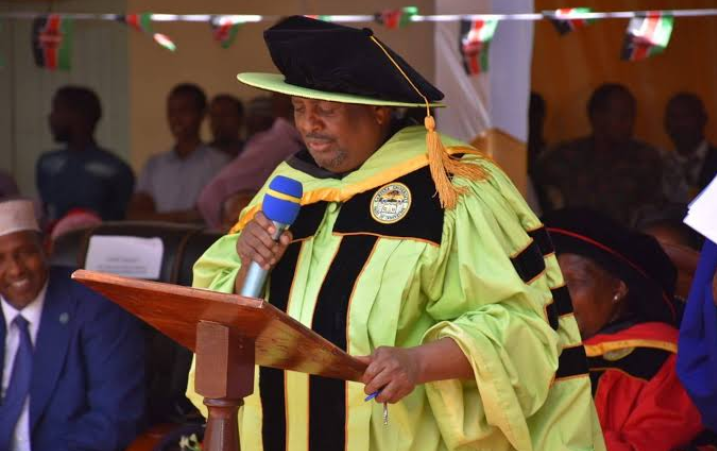A recent audit by Auditor General Nancy Gathungu has raised serious concerns over the management of Garissa University, highlighting several irregularities in both financial practices and governance.
The audit, which covers the university’s financial year ending June 30, 2023, reveals significant lapses, including the use of unapproved systems to collect student tuition fees, failure to appoint substantive leadership, and questionable payroll management practices.
One of the most glaring issues identified in the audit is the university’s adoption of mobile money as a mode of tuition fee payment.
According to the Fee Policy 2018, mobile money is not listed as an approved payment method, with the policy stipulating that student fees should be paid through bank accounts.
However, Garissa University management used mobile money for fee collection, a decision that Auditor Gathungu has described as problematic.
The auditor concluded that the regularity of using mobile money for revenue collection could not be confirmed due to the lack of policy approval.
Gathungu also emphasized that the university had not updated its fee policy to accommodate this form of payment, thus raising concerns about the legitimacy of such transactions.
In addition to the financial irregularities, the audit reveals a prolonged leadership vacuum at the university.
Since receiving its charter in October 2017, Garissa University has operated without a substantive vice chancellor (VC).
The position has remained vacant, with the Cabinet Secretary for Education repeatedly appointing acting vice chancellors on renewable six-month contracts.
This arrangement has persisted for six years, a situation that Gathungu notes is a violation of the University Act, 2012.
According to the auditor, the continued appointment of acting VCs without filling the position substantively undermines the governance of the institution and contravenes legal requirements.
The report calls for the Cabinet Secretary to be reprimanded for this prolonged breach of law.
The university’s failure to appoint deputy vice chancellors on a substantive basis is another area of concern.
Positions for the deputy vice chancellor were advertised in 2019, and interviews were conducted, but the process was halted due to court orders.
As of the audit, the matter remains unresolved, leaving critical leadership gaps in the institution.
Further point of dispute is cast on Garissa University’s financial management practices.
The auditor raised concerns over the payment of over Sh2.4 million as acting allowances to the vice chancellor and acting deputy vice-chancellor over a three-year period.
This payment is in direct violation of the Public Service Human Resource Policies and Procedures, 2016, which stipulates that acting allowances should not exceed six months.
The university’s management, according to the report, breached this regulation, continuing to pay these allowances for an extended period without proper justification.
Another troubling finding in the audit is the university’s failure to properly constitute its council. The post of a council member became vacant in November 2022 after the retirement of a member, but as of the audit in early 2024, no replacement had been made.
This left the university’s council improperly constituted, again in breach of legal requirements.
The audit also cast doubt on the university’s payroll management systems, noting weak controls.
Two cases were identified in which employees had different payroll numbers but shared the same tax identification number.
Additionally, there were instances of officers sharing identity card numbers, which raises serious concerns about the integrity of the payroll system.
The auditor concluded that the effectiveness of payroll controls could not be confirmed.
The findings of this audit are a major blow to Garissa University’s management, revealing not only financial and operational inefficiencies but also serious governance issues that could affect its credibility and functioning.
The management is now under pressure to address these concerns and rectify the issues identified by the auditor.





















Add Comment